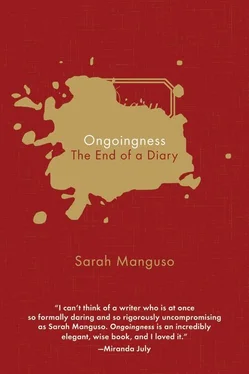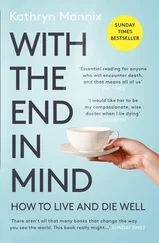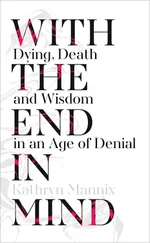Sensory memory lasts about two hundred to five hundred milliseconds after perception. Then it starts to degrade.
Working memory, or short-term memory, allows recall for a period of several seconds to a minute.
Long-term memory can store larger quantities of information for a longer duration, potentially until the end of life. It may be divided into procedural memory, used in learning motor skills, and declarative memory, used in conscious recall.
Declarative memory may be further subdivided into what scientists call semantic memory, which concerns facts taken independent of context, and episodic memory, which concerns personal experiences that occurred at a particular time and place.
Autobiographical memory is generally viewed as equivalent to episodic memory.
I record these facts dutifully, as if they dignify this writing with something more real than my memories — as if they reveal. ♦
The least contaminated memory might exist in the brain of a patient with amnesia — in the brain of someone who cannot contaminate it by remembering it. With each recollection, the memory of it further degrades. The memory and maybe the fact of every kiss start disappearing the moment the two mouths part. ♦
If I considered the act of procreation as essential to the world’s general ongoingness, I could almost accept it as an obligation of being alive.
I believed that parturition would honor the force that, in the nineteenth century, joined my earliest ancestors I know by name, and the forces joining anonymous procreators for centuries and centuries before that, and so on back to the beginning, to the first sexually differentiated animals.
And then, someday, maybe, someone will have needed me to produce one of their ancestors, and that fact of my parturition, that fact and my name, will be the last anyone remembers of me. All the rest of me will be gone, no longer anyone’s burden. ♦
When my grandfather got old, he started emptying the apartment he shared with my demented grandmother. Or maybe these events happened coincidentally.
He didn’t throw anything away. He drove it the quarter mile to my parents’ place — one day a stack of moisture-warped paperbacks, one day a box of colored pencils, and so on. They kept some of it. His things, at least, would keep going after he ended.
When they got old, my parents started emptying their own apartment. They’re selling their things on the internet. I don’t know where anything is going.
I knew I was grown up when I spent time with them and felt not just the weight of my old memories but the weight of theirs, from when they were children. ♦
When I’m back with my own memories I drink a glass of wine or a cup of coffee. It helps soften their pressure, but the effect fades. Then I think I should practice grace for what I’ve been given to remember, but whatever I do, I can’t seem to forget what I want to forget.
And then I think I don’t need to write anything down ever again. Nothing’s gone, not really. Everything that’s ever happened has left its little wound. ♦
For most of my life I claimed that my earliest memory took place in a corner of the kitchen. I stood at the counter, knowing I’d be scolded for having taken cookies from the cookie jar. But of course that wasn’t the first thing my brain learned and kept.
If I’m to believe the child-care books, the first thing I learned and kept was the identity of my mother. ♦
I remember being three, standing at eye level with the drawer in my mother’s night table, the white porcelain knob pierced by a tarnished screw, saying When am I ever going to be four?
When I was four I went with a group of children into a nature preserve, where someone pointed out items of interest.
With great excitement he reported the discovery of a lady’s slipper, a highly endangered thing.
Each child was led to an opening in the bramble. High branches shaded us.
I was led to the opening. A hand must have pointed to a bloom, but I didn’t know to look for a flower. I stood, solemn, seeing nothing, brooding on the phrase lady’s slipper , wondering what it was. I never saw it. The mystery was enough. It was better. Then I moved aside for the next child. ♦
When I was twelve I realized that photographs were ruining my memory. I’d study the photos from an event and gradually forget everything that had happened between the shutter openings. I couldn’t tolerate so much lost memory, and I didn’t want to spectate my life through a viewfinder, so I stopped taking photographs. All the snapshots of my life for the next twenty years were shot by someone else. There aren’t many, but there are enough. ♦
When I was fourteen, it was cloudy on the night I looked through a telescope at the comet. I’ll see it when I’m eighty-seven , I thought on the way home, not caring. ♦
When I was twenty-three I began seeing a psychotherapist because I couldn’t bear the idea that, after the end of an affair, all our shared memories might be expunged from the mind of the other, that they might no longer exist outside my own belief they’d happened.
I couldn’t accept the possibility of being the only one who would remember everything about those moments as carefully as I tried to remember them.
My life, which exists mostly in the memories of the people I’ve known, is deteriorating at the rate of physiological decay. A color, a sensation, the way someone said a single word — soon it will all be gone. In a hundred and fifty years no one alive will ever have known me.
Being forgotten like that, entering that great and ongoing blank, seems more like death than death. ♦
Maybe the best way to remember anything accurately is to write it down and forget it, and then, only at the last moment of your life, to recall it — like listening to a broken tape by hand-feeding it one last time through the tape player.
During the age of the cassette tape, it seemed that everyone was talking about doing that. It was always some high romantic tale, the only live recording of a secret show or the last letter from a long-lost friend.
I never did it. Maybe everyone was lying. No matter. It’s still a decent metaphor. ♦
Could I claim a memory even if I couldn’t access it via language? Or was I writing as if it never had happened?
I didn’t mind that perception is partial or that recollection is worse, but I minded that I didn’t know why I remembered what I remembered — or why I thought I remembered what I remembered. ♦
I assumed that maximizing the breadth and depth of my autobiographical memory would be good for me, force me to write and live with greater care, but in the last thing one writer ever published, when he was almost ninety years old, he wrote a terrible warning.
He said he’d liked remembering almost as much as he’d liked living but that in his old age, if he indulged in certain nostalgias, he would get lost in his memories. He’d have to wander them all night until morning.
He responded to my fan letter when he was ninety. When he was ninety-one, he died.
I just wanted to retain the whole memory of my life, to control the itinerary of my visitations, and to forget what I wanted to forget.
Good luck with that , whispered the dead. ♦
Читать дальше












